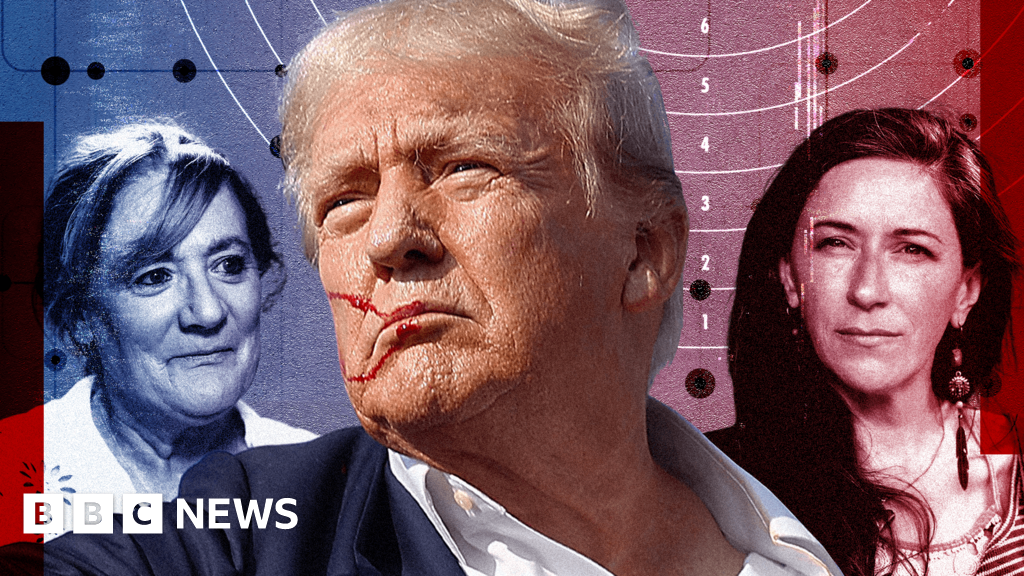- cross-posted to:
- [email protected]
- cross-posted to:
- [email protected]
Wild Mother - the online alias of a woman called Desirée - lives in the mountains of Colorado, where she posts videos to 80,000 followers about holistic wellness and bringing up her little girl. She wants Donald Trump to win the presidential election.
About 70 miles north in the suburbs of Denver is Camille, a passionate supporter of racial and gender equality who lives with a gaggle of rescue dogs and has voted Democrat for the past 15 years.
The two women are poles apart politically - but they both believe assassination attempts against Mr Trump were staged.
Their views on the shooting in July and the apparent foiled plot earlier this month were shaped by different social media posts pushed to their feeds, they both say.
I travelled to Colorado - which became a hotbed of conspiracy theories about the 2020 election being stolen - for the BBC Radio 4 podcast Why Do You Hate Me? USA. I wanted to understand why these evidence-free staged assassination theories seemed to have spread so far across the political spectrum and the consequences for people like Camille and Wild Mother.
🗳️ Register to vote: https://vote.gov/



“Hey, let’s talk to two people whose only qualifications are a shameless willingness to post whatever crazy shit enters their skulls about their conspiracy theories.”
“Should we also talk to ballistics experts and mental health professionals to get a sense of how reasonable it is to think that these plans were staged?”
“Too expensive, I’m already flying first class and staying in five star accommodations in Denver.”
The article isn’t focused on questioning the expertise of ballistic experts or debating whether events were staged. Instead, it assumes that any reasonable reader isn’t a conspiracy theorist. Surely you know that?
The real focus is on the spread and impact of conspiracy theories. The headline highlights a specific example where individuals from two different political backgrounds and towns arrived at the same conspiratorial conclusion, despite receiving information from entirely different sources and completely different justifications.
If your aim is to understand how conspiracy theorists—an increasingly widespread group—come to adopt and believe these theories through their media consumption, then these individuals are entirely appropriate subjects for interviews.